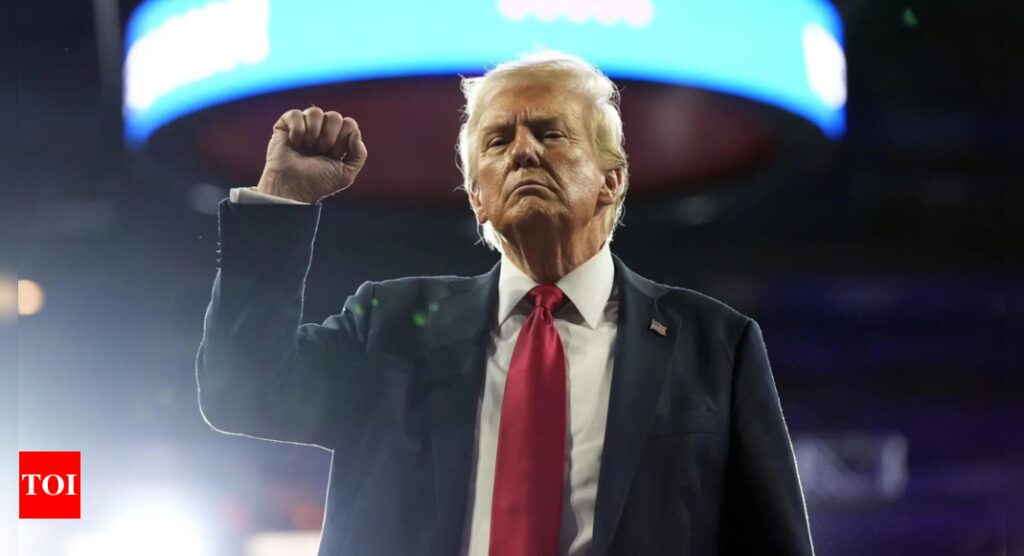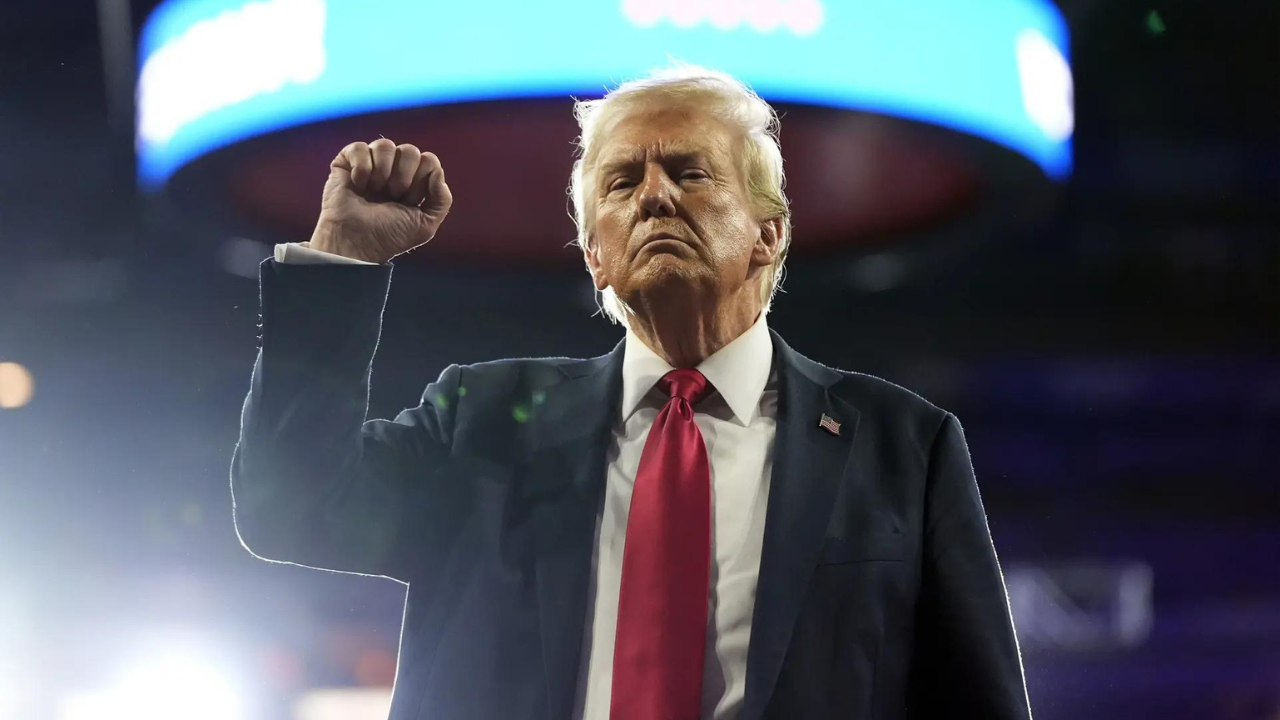President-elect Donald Trump on Saturday outlined a detailed plan to restore freedom of expression and eliminate “left-wing censorship regime,” pledging immediate action upon taking office.
Trump said, “When I am President, this whole rotten system of censorship and information control will be ripped out of the system at large. There won’t be anything left. By restoring free speech, we’ll begin to reclaim our democracy and save our nation.”
He continued that, “If this most fundamental right is allowed to perish, then the rest of our rights and liberties will topple just like dominoes. That’s why today I’m announcing my plan to shatter the left wing censorship regime and to reclaim the right to free speech for all Americans. And reclaim is a very important word in this case because they’ve taken it away.”
Trump proposed a five-point strategy:
- A presidential directive prohibiting federal bodies from partnering with private organisations on speech restriction. Whilst executive directives offer temporary solutions, they could initiate momentum towards formal legislation.
- Department of Justice enquiries into censorship activities, potentially leading to prosecutions for breaches of civil liberties and electoral regulations.
- Modification of Section 230 safeguards to ensure tech corporations are responsible for prejudiced content supervision.
- Financial sanctions, including reduction of federal grants, for universities involved in suppressive practices. This initiative aligns with Trump’s commitment to address antisemitism by noon on his first day.
- A proposed “
Digital Bill of Rights ” aimed at protecting American citizens’ virtual liberties.
Trump said he will issue an executive order immediately after taking office, prohibiting federal entities from collaborating with any organisations to restrict Americans’ lawful speech. “I will then ban federal money from being used to label domestic speech as mis or disinformation,” he added.
The president elect said that he would direct the Department of Justice to examine all participants in the current online censorship system and pursue legal action against identified violations. These investigations will cover potential breaches of civil rights, campaign finance, election laws, securities regulations, antitrust statutes, the Hatch Act, and various other legal infractions.
Request Congress to modify Section 230, limiting large online platforms’ censorship capabilities. These platforms should receive immunity protection only when they demonstrate neutrality, transparency, and fairness. They should focus on removing illegal content whilst reducing their authority to restrict legitimate speech, he said.
“If any US University is discovered to have engaged in censorship activities or election interferences in the past such as flagging social media content for removal of blacklisting, those universities should lose federal research dollars and federal student loan support for a period of five years and maybe more,” he added.
The 78-year-old leader promised to establish legislation with clear criminal consequences for federal officials who collaborate with private entities to circumvent constitutional rights. Without proper elections and border control, our nation’s integrity is compromised.
Trump said, “to confront the problems of major platforms being infiltrated by legions of former deep staters and intelligence officials, there should be a seven year calling off period before any employee of the FBI, CIA, nsa, dni, DHS or DOD is allowed to take a job at a company possessing vast quantities of US User data.”
Congress should enact a Digital Bill of Rights, ensuring digital due process and requiring court orders for content removal. Users should receive notifications about account restrictions, explanations for such actions, and appeal opportunities. Adults should have the option to bypass content moderation entirely if desired, he added.
He emphasised the fundamental nature of free speech and said, “If we don’t have free speech, we don’t have a free country.”


